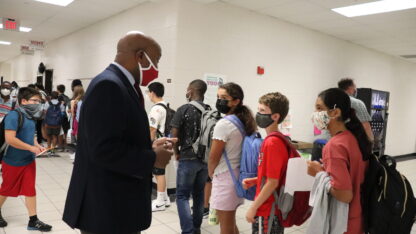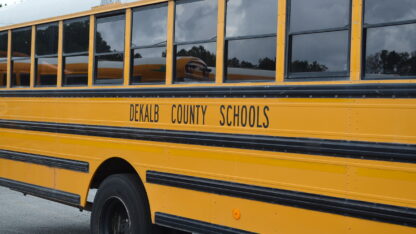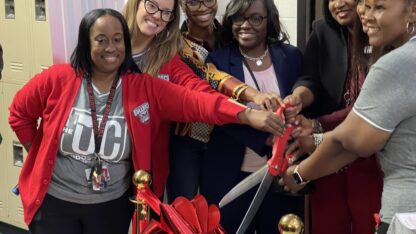1. “The pandemic slide”
This is what some are calling the months of learning students lost during the pandemic. Georgia school districts received unprecedented amounts of money through federal relief programs, at least 20% of which is supposed to directly address learning loss. School districts have invested in extra tutoring and summer programs to help close the gap. Atlanta Public Schools has extended the school day by 30 minutes to provide additional instruction. Dr. Tim Sass, the director of Georgia State University’s Metro Atlanta Policy Lab for Education, says schools should focus on high-dosage tutoring while students are in school, since fewer students participate in summer programs.
“We have a report looking at a summer school from one of the metro districts and the big problem was that students just didn’t show up,” he says. “Less than 20% of students invited to summer school, where those invitations were based on the fact that their achievement levels were at least a grade level behind, didn’t go.”
Several metro Atlanta districts have invested in high-dosage tutoring during the school day. Some have also built in intervention periods to help kids catch up. Federal aid runs out after the 2023-24 school year, so districts don’t have a lot of time left to make use of the money.
2. The renewed reading wars
This debate has roots in the early 1990s, when some educators fought over the benefits of phonics instruction vs. whole language. Phonics focused on teaching students to sound out words, while whole language focuses on identifying words by sight. Many school districts ended up adopting an approach called ‘balanced literacy,’ which in theory combined the two. Now, the issue has been reborn as dyslexia advocates push schools to invest in a program called, “The Science of Reading.” The program incorporates structured literacy programs that focus on phonics instruction (sound/symbol relationships), spelling, fluency and comprehension. Some districts, like Fulton County schools, have invested in SOR training for teachers. But some experts say SOR isn’t as scientific as its proponents would like to believe. The Georgia House of Representatives has developed a study committee on literacy instruction and could introduce legislation on the issue this session.
3. An updated funding formula?
Georgia’s public school funding formula is called Quality Basic Education (QBE). It’s a student-based formula, meaning it estimates the cost of providing a quality, basic education for each student in Georgia’s schools and provides money to districts based on those costs. The problem, some say, is the formula was developed in 1985 and has only been slightly amended since then. Educators point out that in 1985, technology funding wasn’t included in the formula, for example. In 2016, then-Gov. Nathan Deal put together a commission tasked with making recommendations about updating QBE. The commission did so, yet no changes were ultimately made to the formula. Many advocates are also pushing lawmakers to allocate more funding for students in poverty. Could 2023 be the year lawmakers take this on?










